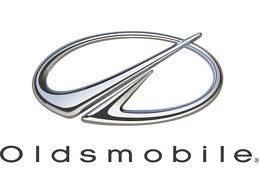Alero L4-144 2.4L DOHC VIN T SFI (2000)

Alignment: Service and Repair
Preliminary Alignment Inspection
Steering and ride complaints are not always the result of improper alignment. Another possibility is tire lead, due to worn or improperly manufactured
tires. Lead is the vehicle's deviation from a straight path on a level road without pressure on the steering wheel. Refer to Radial Tire Lead/Pull
Correction in Wheels, Tires and Alignment in order to determine if the vehicle has a lead problem. Before making any adjustment affecting wheel
alignment, perform the following inspections in order to ensure the correct alignment readings and alignment adjustments.
-
Inspect all of the tires for proper inflation pressures. Also verify that the tires have similar tread wear.
-
Inspect the hub and bearing assemblies for excessive wear. Replace the hub and bearing assemblies if necessary. Refer to Wheel Bearing/Hub
Replacement - Front.
-
Inspect the ball joints and the tie rod ends. If the ball joints are loose, correct the condition before adjusting the alignment. Refer to Ball Stud
and Knuckle Inspection.
-
Inspect for a run-out of the wheels and the tires. Refer to Tire and Wheel Removal and Installation in Wheels, Tires and Alignment.
-
Inspect the vehicle trim height. If the vehicle trim height is out of limits, correct the condition before adjusting the alignment. Refer to Trim
Height Specifications (Pontiac) or Trim Height Specifications (Oldsmobile).
-
Inspect the strut dampeners; for proper operation.
-
Inspect the control arms for loose bushings.
-
Inspect the stabilizer shaft for loose or missing parts.
-
Inspect the suspension and the steering components for damage. Replace the parts as necessary.
Consideration must be given to excess loads, such as tool boxes, sample cases, etc.. If these items are normally carried in the vehicle, they should
remain in the vehicle during alignment adjustments. Loads such as these should be centered in the vehicle whenever possible in order to minimize
their effects. Consideration should also be given to the condition of the equipment being used in order to adjust the alignment. Follow the equipment
manufacturer's instructions. Regardless of the equipment used in order to adjust the alignment, the vehicle must be on a level surface, both fore-and-aft
and sideways.
